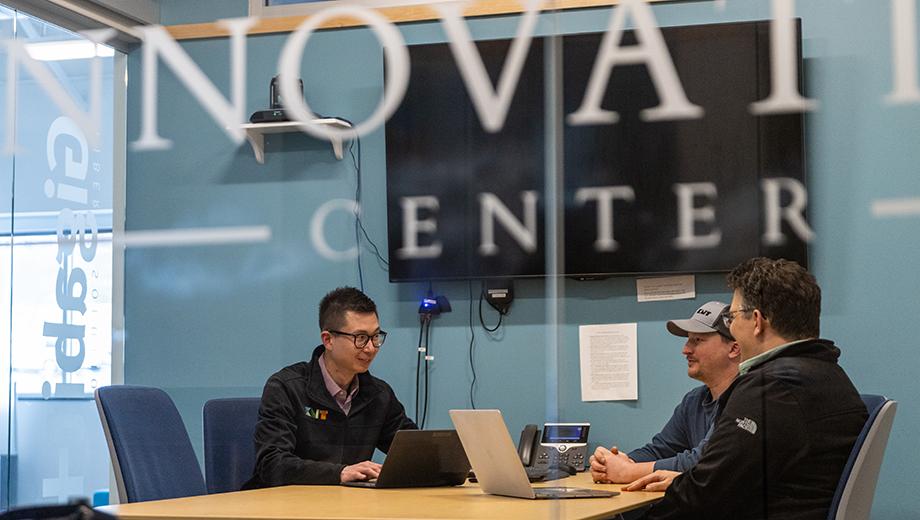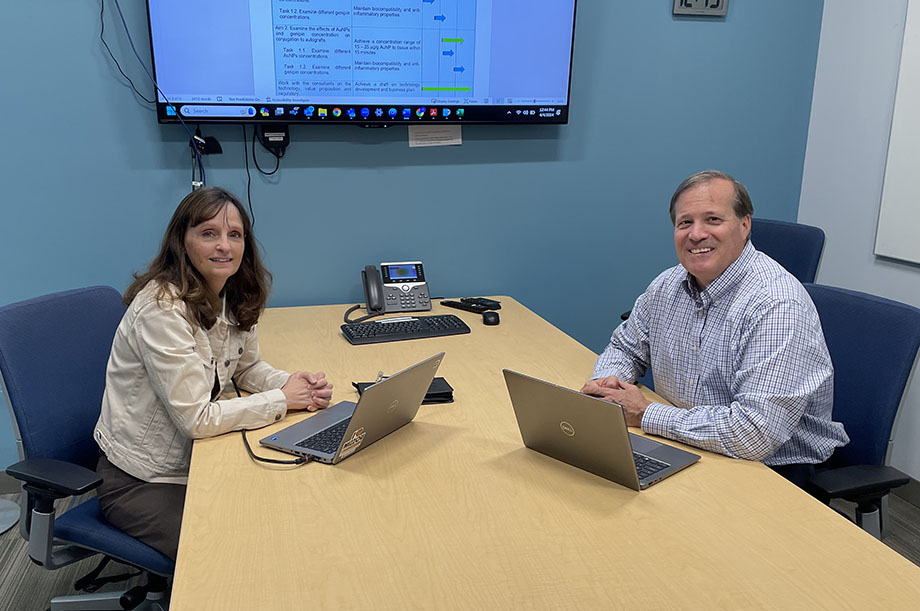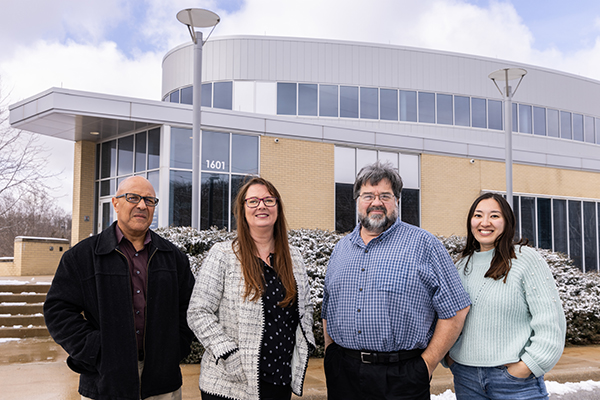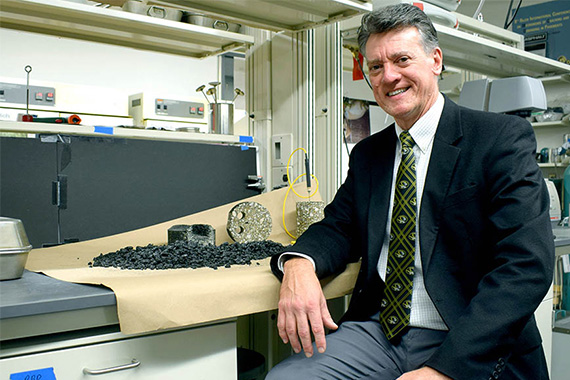May 14, 2024
Mizzou researchers and alumni are working with the Missouri Innovation Center to cultivate and advance their startups.

Faculty at leading research, land-grant institutions like the University of Missouri juggle many roles. They teach and mentor students, write grants, conduct research, publish their work and engage the public. So what would motivate them to add “entrepreneur” to the list?

Making a larger impact on the world is often what drives academic researchers like Sheila and David Grant to start a business. Their biomedical startup company, G5 Biological Innovations, is helping them bring their advances in soft tissue materials to orthopedic patients.
“Translational research is learning how to take discoveries made in the laboratory and translating them into viable products that can make a difference in the lives of others,” says Sheila Grant, professor of chemical and biomedical engineering and a NextGen Precision Health building investigator. “That is an exciting and powerful thing to do. We knew that our discoveries could help improve patient outcomes.”
Researchers whose work has commercial potential create startup companies for a number of reasons. Not only does it help them bridge the gap between scientific findings and practical solutions, but it allows them to access additional funding from investors, federal agencies and industry partners, and it gives them more flexibility to pursue ideas and approaches that may not be feasible within a traditional higher education setting.
Incubate and elevate
G5 Biological is one of 17 companies currently located at the MU Life Science Business Incubator in the university’s Research Commons area off Providence Road. The Missouri Innovation Center (MIC) team manages and operates the incubator, which has served more than 200 resident and affiliate clients with early-stage businesses since it opened in December 2008.
Entrepreneurs who locate their businesses in the incubator can rent a single desk, private office or state-of-the-art web lab. They also can take advantage of mentoring, business counseling, grant writing assistance, educational programming, networking opportunities, shared equipment and other services.
“While Mizzou faculty have great research accomplishments and write impactful academic papers, they might not know how to best translate their ideas into the commercial or consumer space without extra support,” Sheila Grant says.

“Our time at the MU Life Science Business Incubator was essential to our success and our story.”
— Katie Thompson, B.S. ’04, Ph.D. ’11, co-founder and COO, Elemental Enzymes
Funding from the Missouri Technology Corp., a public-private partnership created by the Missouri General Assembly to attract high-tech companies to the state, helps the MIC team support mid-Missouri entrepreneurs. The corporation awarded MIC a two-year, $325,000 grant in February and a $200,000 grant in 2023.
“The grants allow us to continue quality operations at very affordable prices that we couldn’t do otherwise,” says Quinten Messbarger, MIC president and CEO. “And they are allowing us to have appropriate staffing so we can deliver better incubation services to our clients and help more entrepreneurs, including those from the university.”
Faculty from any discipline can tap a rich variety of business-building resources, including those associated with MU’s new $5.5 million Accelerating Research Translation award from the National Science Foundation. Principal investigator Sheila Grant says the award will be used to set up a Technology, Entrepreneurship and Commercialization Hub, providing translational researchers with guidance and a pathway that incorporates MIC services.
G5 Biological Innovations CEO David Grant, who has founded four businesses throughout his career, says his advice for researchers embarking on the commercialization journey is to “take risks, make mistakes, pivot if needed and keep on trying.”
Meet other Tigers at the incubator

Tiger Eye Engineering
This AI-based software development company is focused on automated pavement inspection and generalized asset detection and characterization.
Bill Buttlar, Glen Barton Chair in Flexible Pavements, says his company’s aim is to make the job of road owners and managers less daunting by providing them with highly accurate data presented on visualization dashboards.
He says MIC adds value to its space by providing access to experts in grant proposal writing, NSF Innovation Corps (I-Corps) entrepreneurial training and Small Business Innovation Research (SBIR) programs..
“Programs such as I-Corps help entrepreneurs to clearly identify value propositions, customers and products so that an effective business model can be developed,” Buttlar says.
This story was originally published by the Mizzou Research, Innovation & Impact – Administrative Office. Read the full story here.